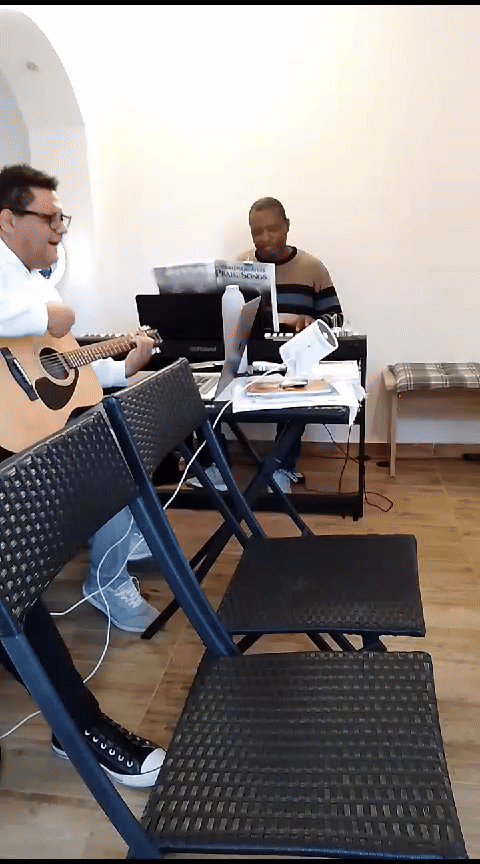The Posture of the Heart
Jesus once told the story of 2 men who went to pray in the temple. Two people that contrasted to one another based on their stand in the society in that time.
One is a Pharisee, and the other is a tax collector. Let’s look at the account of the story in the book of
Luke 18: 9 – 13
9 To some who were confident of their own righteousness and looked down on everyone else, Jesus told this parable: 10 “Two men went up to the temple to pray, one a Pharisee and the other a tax collector. 11 The Pharisee stood by himself and prayed: ‘God, I thank you that I am not like other people—robbers, evildoers, adulterers—or even like this tax collector. 12 I fast twice a week and give a tenth of all I get.’
13 “But the tax collector stood at a distance. He would not even look up to heaven, but beat his breast and said, ‘God, have mercy on me, a sinner.’
- Understanding the context
For us to understand the depth of the message behind this story and draw the lessons we must, it is important to first grasp the background and context. As a famous preacher often says, “A text without context is a pretext,” so let’s start by understanding the context.
At that time, Jerusalem was under Roman occupation, and the average person had to deal with two forms of leadership. On one hand, there were the religious leaders, the Pharisees and Sadducees, who had the authority to manage religious matters according to Jewish traditions. On the other hand, there was the political authority of the Roman Empire, which imposed taxes and maintained control.
The common man was caught between these two powers: if you didn’t pay your taxes, the Romans could jail you; but if you didn’t respect the religious authority, you could be punished within the Jewish community.
These two people who came in the temple to pray represent two high ranking officials under these two systems. Yet the Temple would be considered part of the Jewish community affairs.
So in the Temple, the Pharisee stands tall, a religious ruler—a man known for his devotion to the law, a figure well respected, revered, and admired by the community.
He’s the man that people look up to when they need spiritual guidance.
He’s elevated by titles, by his position, by his deeds,
a man many levels above the average person in the society.
And in the Temple, He is at Home. In other terms you would say a big fish swimming in the water.
Now, on the other hand, in this same Temple, you see the tax collector, a man who belongs to the other system. An outsider you would say.
He carries with him the weight of public disdain. Not only He is not at home here in the Temple, but he is also viewed as a sellout, an agent of the Roman Empire.
You see, in those days, tax collectors were seen as traitors because they collected tax from their own people, filling Rome’s coffers while emptying the pockets of their fellow Israelites.
They were hated, despised and yet this man comes to the Temple to pray.
He comes to God, in that very place where the people of God would view him as a betrayer, a symbol of compromise in the face of an enemy who oppressed the people.
Have you ever been in place where you felt you were not welcome ? Have you ever been in a place where people make you feel “there is us, and there is you” ?
- You always have access to God, no matter what
As the story goes, both went to the Temple. Both these men came to God: this must tell you something. Everyone has access to God, the good ones and the bad ones.
Everyone can come and talk to God, both the elevated ones, those entitled to do so, but also the weak ones, the outsiders. So let no-one ever tell you again that your access to God could be lost because of whatever things you’ve done.
There is no-one on this earth who can say they have never committed a sin, so if anyone, including your own self, tries to tell you again that you have lost access to God due to whatever fault, that is simply not true. If that would be the case, then nobody has access to God at all.
But remember, even the devil has access to God and as you would remember in the book of Job, the devil made a request to God about Job. So if the devil can come to God and make a request and if God can listen and grant to the devil a conditional answer to his request, certainly God can listen when you pray.
Don’t let anyone ever fool you again telling you that you can only pray when you are holy, or feel spiritual. At all time, you have access to God. So pray in every circumstance. Because it is from the Lord that comes your Help, therefore looking at yourself instead of looking at God is the worst mistake you can do.
Remember also that it is in your own interest to pray. Because you don’t know what other people could be asking God for you. They might be wrong in their perceptions of your circumstances and could be asking something to God about you which at all does not suit you. So do not let your destiny be guided solely by the prayers of others.
You have access to God, you always have: so please pray.
- The posture of the heart – water flows from the top to down
Now watch these two people coming to the temple for prayer. Watch the scene: one comes to God with thanksgiving. He has a list of accomplishments he can be proud of.
Look at his prayer “God, I thank you that I am not like other people—robbers, evildoers, adulterers—or even like this tax collector. I fast twice a week and give a tenth of all I get.”
It looks at first sight as the Pharisee was thanking God, but in reality, he was boasting about his own resumé. He was despising other people in the presence of God.
Do you know that Bible verse that says let humility makes us look others as greater than ourselves ?
Phillipians 2:3 “Do nothing from selfish ambition or conceit, but in humility count others more significant than yourselves.”
Let us catch this today because God is speaking to his church about the posture of the heart.
Two people went to pray with different heart postures. One is proud of all his accomplishments, and the other wouldn’t even lift his eyes to heaven.
He stood there with his head down, beating his chest, saying, “God, have mercy on me, a sinner.” Now, right there, we see the essence of a humble heart. He came before God with a broken spirit, acknowledging that he had nothing to offer but his need for God’s grace.
Two men, two hearts, two souls, walking into the same temple. One is confident in his own righteousness, standing tall, with his chest puffed out. The other is a broken man, desperate for mercy, overwhelmed by his own failings.
See, this is the power of what Jesus is showing us—a contrast that cuts to the heart.
When Jesus told this parable, He wasn’t just telling a story. He was telling us that God is not interested in how pretty we look, how flawless our résumé is, or how well we talk the talk.
It’s not about how much we have, who people say we are, or how spotless we think our records may be.
It’s about coming into the presence of God with an understanding of who you really are—just as you are, without pretense.
Because there is something about God’s mercy that can only flow when you come in with humility. Have you ever seen water climbing a mountain ? If you want to receive from God, be low in your attitude. Just as water would flow from the highest place to the lower place, so must the posture of our heart be before God and in His presence. Taking this place of humility is the only way we can truly receive God’s blessings.
Jesus wanted to expose something much deeper: the posture of our heart tells how far we will go.
Because God has never failed anyone. So there is nobody who relies on God and his mercy to whom God will ever fail.
We may not have the best past, we may not have the fanciest words when we come to pray, but we can always say: Lord I need you. I can’t do this by myself without you.
You might be thinking, but I have too many mistakes, I have screw up too much, I’m done. But you are exactly the person God wants to use.
Because when you humble yourself before God, He will fight your battles, he will lift you up. He will take your mess and turns it into a message of grace.
God is not into the business of promoting proud, but God is in the business of saving the lost, giving hope to the hopeless, restoring and exalting those who know they cannot make it without him.
So practically: let us repent for all the times we have sought self righteousness. Let us repent for too much religious attitude that has kept us short from receiving God’s blessings.
Let’s start today a journey of humility, with hearts that have the right posture. Hearts that rely on God, hearts that build on humility.
Brother Pierre – Berlin 12.10.20

